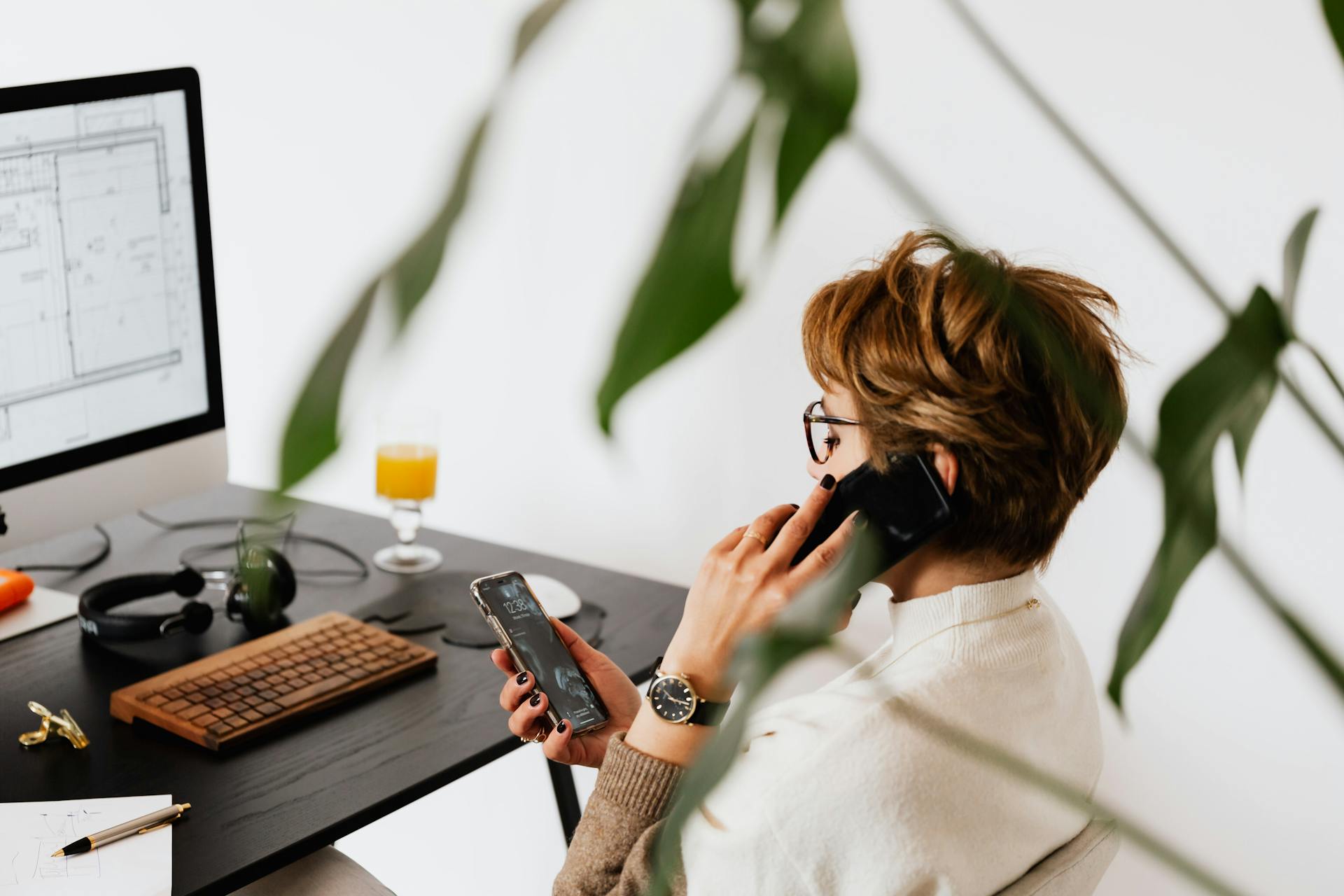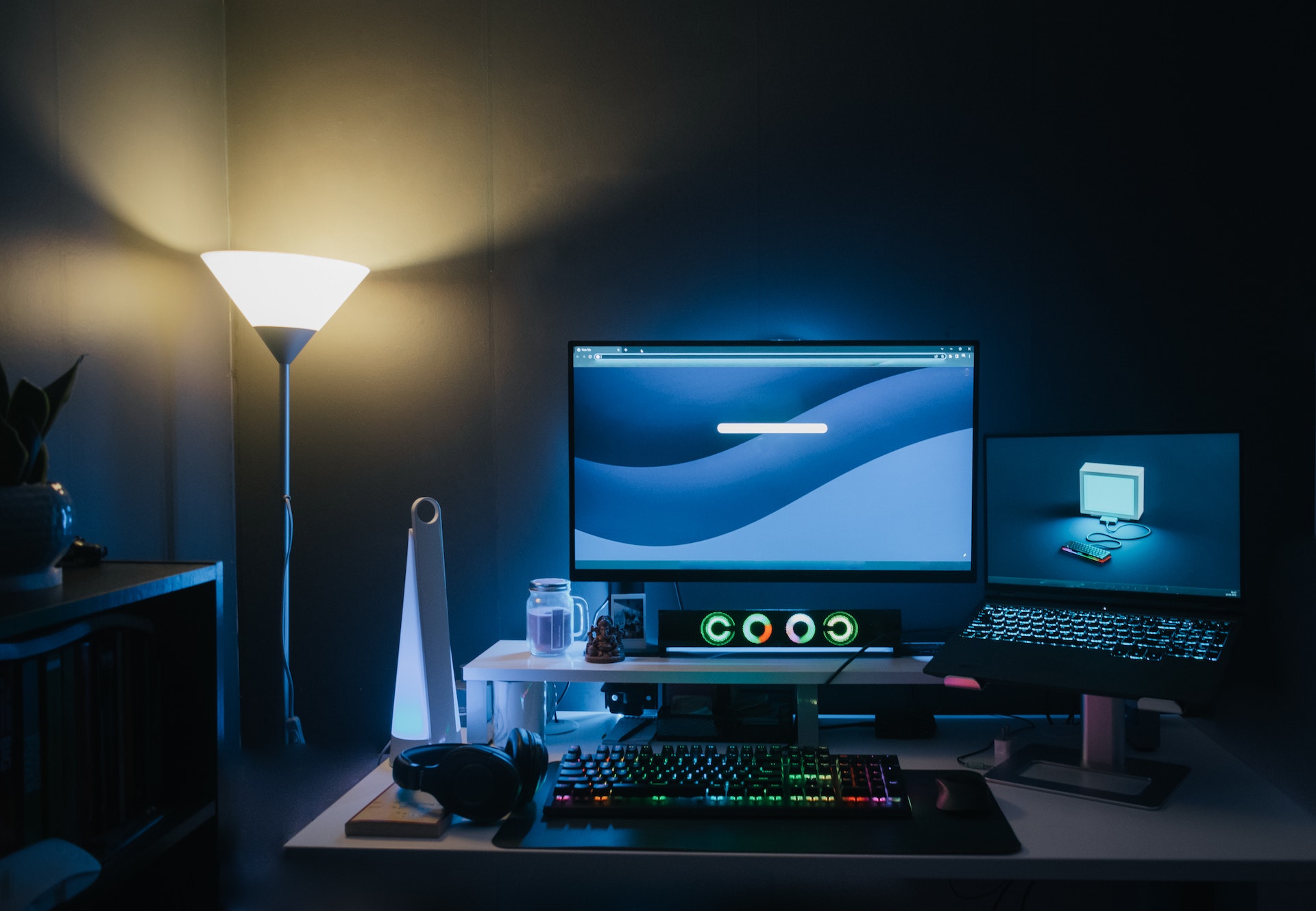

Many of us struggled with our mental health and productivity when the COVID-19 completely turned the world upside. Then, during the summer, we were guilty somewhat of easing up a bit — and who could blame us? Then winter came, and COVID cases started surging again — but it appears with the vaccine roll-out, we might be headed to a small break again just in time for summer.
I think most of us realize that the vaccine is for the better good of all. But, now we are getting travel warnings about other countries and that some vaccines in other parts of the world haven’t worked well — that doesn’t make all of this any easier. In fact, according to a TELUS International survey, 75% of employees “have struggled at work due to anxiety caused by the COVID-19 pandemic and other recent world events.”
Maintaining Your Mental Health and Productivity
Many have lost their jobs, many have taken salary cuts, and the isolation of working from home presents a whole other set of mental health concerns. When we look at productivity, many issues affect it, including these listed.
Whether we are in COVID or dealing with regular life issues, the ways you can maintain your productivity and well-being remain the same.
1. Set a goal each day.
“Nothing makes us feel better than a sense of accomplishment and pride in doing what we said we would,” says Cate Murden, Founder and coach at the wellbeing company PUSH. “So give yourself a goal each day.”
“I like to choose from the 5 Fs – family, finances, fun, focus, and fitness,” adds Murden. “However, make your own list up and, if you’re feeling brave, why not do all five?”
2. Spice up your life.
I know, this was much easier in a pre-COVID world. But, it’s still possible to add variety to your life so that you don’t get complacent.
Experiment with your daily routine.
You don’t necessarily have to break your routine. After all, a routine provides structure and normalcy. You can experiment with your online Calendar schedule to determine when you’re most productive or achieve work-life integration.
Utilize the power of music and laughter.
“Something exciting to do every day would be to dance or enjoy some type of music that brings a feeling of joy,” says licensed mental health counselor Shani Graves. “You can also make yourself laugh at an old memory. We have tendencies to live in the negative and positive self-talk, which is not an easy thing to do every day.”
But moving, listening to music, and laughing is something we can easily do to make ourselves smile,” says Graves. In particular, classical music has been found to boost mental health and wellbeing in isolation.
Get out into nature.
Numerous research has found that spending outside is one of the most effective ways to improve your overall well-being. “Ideally, this would be a forest of a nature preserve, but it can be a local park or a beach,” says Patricia Farrell, a licensed clinical psychologist.
“There is something not only calming about nature in these places but creative as well—it is recommended that if you want to increase your creativity, you get out into nature as often as possible,” adds Farrell. “Walking, in particular, seems to stimulate creativity, and that can open a whole host of doors to new exciting possibilities for you.”
Think outside the box.
Dr. Jesse Matthews, licensed psychologist, suggests to “think outside of the box and always try new things, whether this means starting an exercise routine, trying new types of fitness, cooking something new, reading something different, or generally trying something they have never tried before.”
The key when you are in a rut in your life is to shake it up, get out of your comfort zone, and make yourself try something new,” states Dr. Matthews. “This can occur in small ways or in larger ones—it all depends on the individual.”
3. Engage in “flow” activities.
In a study published in November 2020 in the journal PLOS One, it’s been found that flow activities may be able to combat quarantine. What exactly is, are there types of activities? Well, they should meet the following criteria:
- It should be enjoyable and push you, but not to the point of frustration.
- You should be able to track your progress.
“Some activities, like video games, have those features built-in,” explains author Kate Sweeny, a psychology professor at the University of California, Riverside. “Other activities might take more creativity to get into a flow state.” Other examples could be art, yoga, running, swimming, or learning.
What about losing track of time on TikTok, YouTube, or Twitter?
“My lab talks a lot about whether something like scrolling social media, reading a good book, or watching a great show or movie should be considered flow activities,” Sweeny says. “For now, I’d say they’re out — they’re zoning out instead of zoning in.”
“If people find themselves cooped up, whether due to Covid-19 or wintery weather, our study suggests that keeping busy may be a good way to stay well during that kind of isolation,” Sweeny says. Best of all? Almost any activity can be turned into a flow one.
4. Retain your autonomy.
It was harder to retain autonomy during the height of COVID — but autonomy is always an important concept to keep in mind, whether you’re stuck at home, not feeling well, and especially if you’re overworked. If you’re a team leader, you can encourage a more flexible work schedule — if you haven’t done so yet. If you’re not in that position — ask if your new normal can be part of the week working from home and part of the week back in the office.
Outside of work, focus on areas that you do have control over. For instance, you can set up and organize your workspace however you please. You can also decide what to eat, how to spend your downtime, and budget your finances.
5. Keep in contact.
The biggest downfall last year and this has been not interacting with friends, family, clients, and colleagues in person. While a lot of us have adjusted, it still sucks. If you haven’t been able to be with family or friends — plan something now that you can go outside and still be distanced.
Zoom and video calls have been all the rage. We’re obviously tired of them now, but you can go old school with email, texts, and phone calls. Whatever you determine to do — plan an event with in-person contact as soon as possible.
I recently took a drive to visit my mom and dad. We went out to dinner. It was possible to social distance a little — not much — but all of us have had our COVID vacs, making it more comfortable to get together.
Also, I had a Zoom call with some friends last weekend. Since we hadn’t done this for months, the video call was actually enjoyable. In the future, we’ll limit our Zoom calls to keep it this way.
6. Turn off your “biz self.”
The TELUS survey also found that almost four in five respondents have found it hard to “shut off” from work in the evenings. In addition to constantly being “plugged in,” we also don’t have buffers between our personal and professional lives.
One simple strategy? “Once you’re done with your workday, you’ve gotta turn everything off,” recommends Marie Forleo. “So turn the cell phone off, put it on airplane mode, you’ve gotta close down the laptop.”
Other strategies you could try would be changing into different clothes or taking a walk after work. You may also want to remove social media apps from your phone. Or, you could establish “tech-free” zones in your home, like your bedroom — try to limit screen time.
Another technique I’ve found useful is making plans to do something. Schedule a family game night or attend a virtual concert through platforms like nugs.net. To stay on top of mental health, it’s essential to be interested in life. Planning an event — even for yourself — keeps your interest alive.
7. Plan a staycation.
Another finding from the Telus survey was that half of the respondents had not taken a “mental health day” since they started working from home because of the pandemic. Also, 44% stated that they hadn’t taken a day of vacation during this same timeframe.
One idea to address both of these would be planning a staycation. While it’s not as exciting as an actual vacation, it will still give you something to look forward to. And, it will give you that desperately needed opportunity to take some time off and recharge.
Some suggestions would be visiting a virtual museum, going camping at a nearby park, or volunteering. You could also swap homes with those in your social bubble. Or, you can literally rest and relax all day by turning your bathroom into a spa and reading.
Remember that the times — they are a-changin’. I noticed that I am still avoiding making the “going out” types of plans. It’s time to get braver now. We can do more — we can venture a little further out as we gain herd immunity with the vaccines.
8. Seek professional help.
2020 has been a trying time for most of us — to say the least. Now, more than ever, you should reach out for help. And, thanks to technology, you can use teletherapy to speak with a mental health professional without jeopardizing your physical health.
Sometime, you may want to allow your friends or family to really see you and let them know you are hurting. If they can’t handle it, okay — it’s them, not you. But you may be surprised at who will come to your aide — and who is feeling the same way you’re feeling. It’s worth a try.
There’s even a handy online survey you can take to help you identify what strong points you are feeling and how to use these to your advantage going forward.
Final words of advice.
This last year hasn’t been ideal — but a strong Spring breeze is blowing. Thankfully, change is in the air. As you continue getting to know yourself better and realign your priorities for maintaining your mental health and productivity — take a chance and do something new.
Image Credit: maksim goncharenok; pexels; thank you!











Deanna Ritchie
Editor-in-Chief at Calendar. Former Editor-in-Chief and writer at Startup Grind. Freelance editor at Entrepreneur.com. Deanna loves to help build startups, and guide them to discover the business value of their online content and social media marketing.